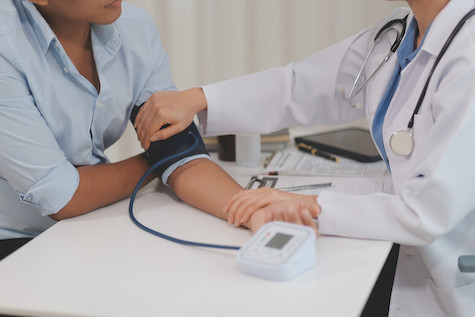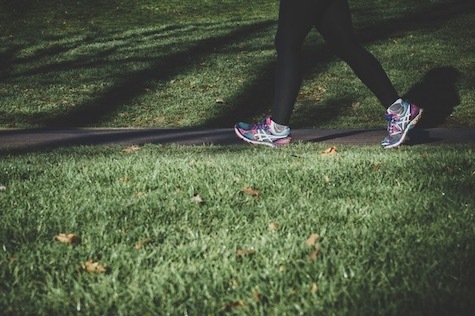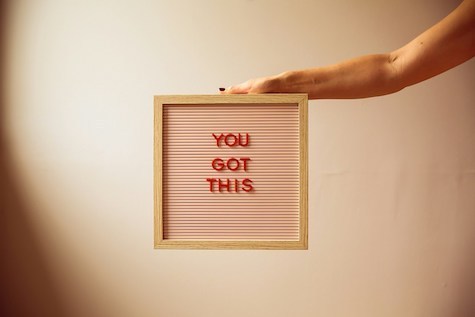
Whole & Holy: A container for goodness
In 2025 this monthly blog, written by a variety of clergy and laity, will provide insights into improving your physical health and well-being, one aspect of holistic discipleship.
*****

Exercise. Eat better. Find friends. Save money.
Resolutions. Intentions. Goals.
The messages are relentless this time of year. Yet, for me, something about turning the page to a new year awakens a desire to be better, to grow. After a season of “a lot”—including holiday overindulgence—I find I am in a place of readiness.
I have recently been reflecting upon not only my own well-being, but what I am hearing from our clergy and staff, and my circle of relationships. The sentiment is consistent: Our physical self needs tending, but we would rather focus on something else.
Why do we resist caring for this gift from God—our human body that holds something divine and beautiful within, this container that is a vehicle for being and doing good in the world?
“Or didn't you realize that your body is a sacred place, the place of the Holy Spirit? Don't you see that you can’t live however you please, squandering what God paid such a high price for? The physical part of you is not some piece of property belonging to the spiritual part of you. God owns the whole works.” –1 Corinthians 6: 19-20, The Message
How can we become the best version of ourselves, the person God created and calls us to be? We are bombarded with messages showcasing the desired physical attributes and related lifestyle practices that, frankly, I cannot attain. I often want to give up before I start. Or I start and fail immediately, as my 10-point plan with five action steps each is daunting.
For some of you, 2025 is the year to start caring for your physical self, ready or not. What are ways to have more energy? Become stronger? Play longer? No matter your starting point, here are five areas to consider—and only one of them is “exercise more!”

Photo from Unsplash
1. Schedule your preventive healthcare visits: medical, dental, mammogram, dermatology, vision and any specialist your unique needs require. Protect your calendar. Make these appointments a priority.
2. Move more: Standard guidelines recommend 150 minutes of movement per week. Start with 10 minutes of movement (walking works!) a few times a week and build from there. Plan and journal your progress. Introduce variety. Cover the four major movement areas as you develop a plan: cardio, strength, flexibility, and balance. If you’re interested in guidance as you age, explore here.
3. Eat better. Fuel your body with nourishing food. Michael Pollen, author of “Defense of Food,” gives this simple advice: “Eat food. Not too much. Mostly plants.” Eat whole food. Avoid processed food and sugar, understanding that most processed food includes sugar. Focus on making one or two changes each week. Explore the Mediterranean Diet or the MIND Diet as a start.
4. Get enough sleep. Adequate sleep is essential to overall physical and mental well-being. Check out sleep guidelines and practices that improve sleep. Try out a sleep app like BetterSleep or read “Why We Sleep: Unlocking the Power of Sleep and Dreams” by Matthew Walker. You can also check out Matt’s website, Sleep Diplomat, for additional helpful information.
5. Hydrate well. Our adult bodies (on the average) are 60% water. To maintain the proper level, we must replenish frequently. Drinking half your body weight in ounces each day is a helpful guideline. Additional insights can be found here. Drink safe water in a water bottle or container.
So many areas to consider. Where to start?

· Reflection: How are you feeling? What could make a difference in your energy, stamina, strength, gut health? Honestly and brutally think about what you have or haven’t been doing, what could make a difference.
· Action: Now pick one area to focus on and one or two action steps. Review weekly while adding steps and building upon your effort.
· Accountability: Seek help from a friend or partner with whom you share your goals and progress weekly, if not daily. Consider a health coach, nutritionist, or personal trainer to get you started after consulting with your doctor.
The first step is always the hardest. Whatever step you take, do something! You are God’s vessel for goodness and light.
In the upcoming months, others will share their stories, tips, and resources on how they have been tending to their holy containers—this gift from God. Don’t wait. Start now.